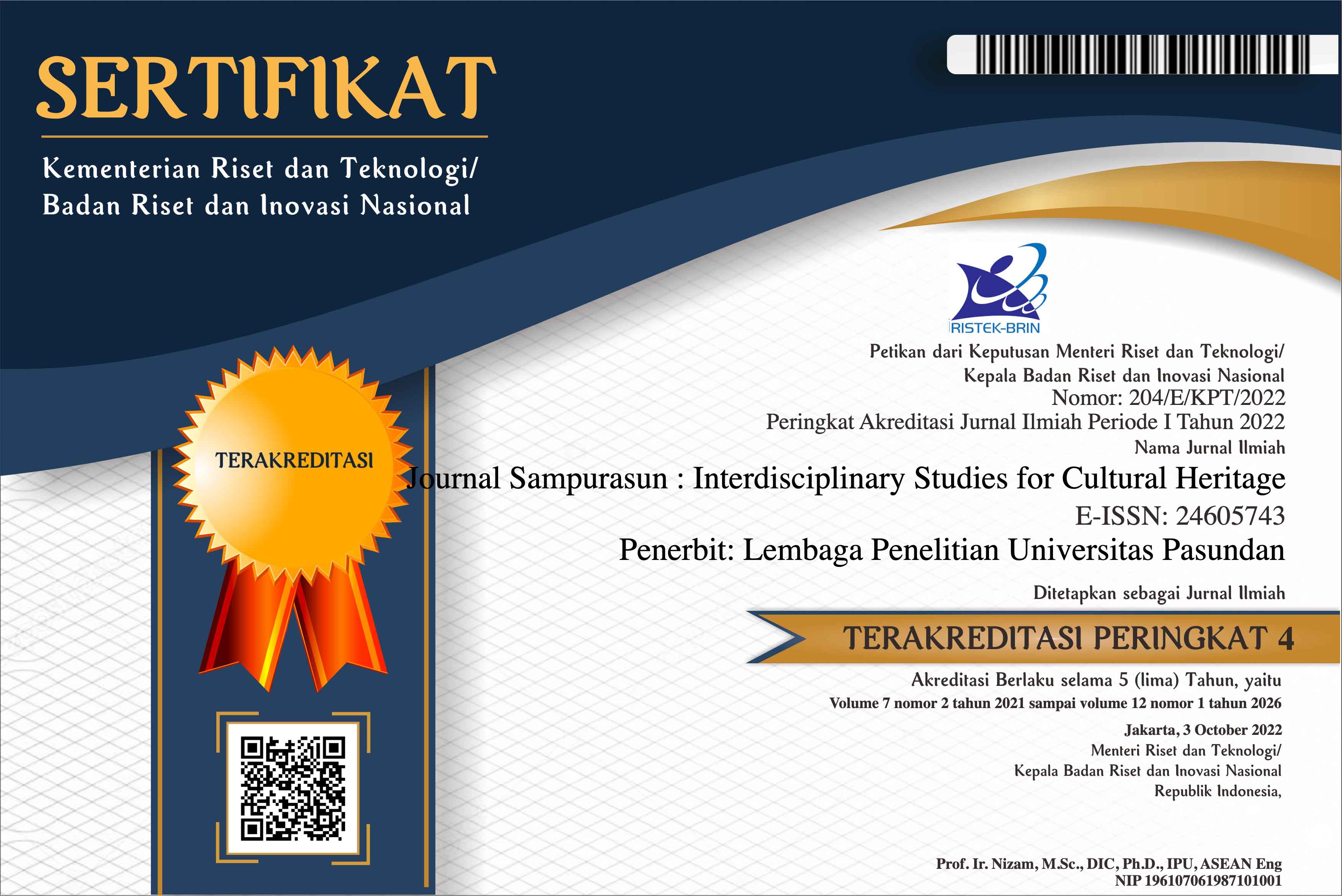PRESERVING THE TINGUIAN CULTURAL HERITAGE: MOTHER TONGUE-BASED MULTI-LINGUAL EDUCATION AS TOOL
Preserving cultural heritage; Tinguian; Ilocano; First Language; Mother Tongue-Based Multi- lingual Education
DOI:
https://doi.org/10.23969/sampurasun.v2i01.123Abstract
Cultural heritage is important to people’s identity and character.Preserving the culture is therefore very important for the future generations. The Tinguians who are the natives of Abra Province have their own culture which is distinct from other Filipino ethnolinguistic groups. Studies on the Tinguians however, show that many of their customs, traditions, practices and beliefs are no longer observed or done. To develop socio-cultural awarenesswhich enhances the pride of the learner’s heritage, language and culture,the Department of Education has institutionalized the Mother Tongue-Based Multilingual Education as its fundamental educational policy and program. This study which is a qualitative research aimed to determine how the program helps in the preservation of the Tinguian culture. The interview guide was used to gather data from the teachers, and officials of the selected public schools in Tinguian communities where the program was piloted.These were complemented by the observations of the researchers when they visited the schools. Based on the findings of the study, the first language or mother tongue of the learners is Ilocano thus the medium of instruction for kindergarten to Grade 3 is Ilocano; some of the teachers are not Tinguians and cannot speak the dialect; there is no working orthography of the Tinguian dialects; there are no available teachers guide, reading and instructional materialsin Tinguian; many of the learners whose parents are Tinguians speak Ilocano with their friends and classmates.Downloads
Downloads
Published
Issue
Section
License
Copyright Notice
Authors should not withdraw their submitted papers because the withdrawal wastes voluntary works devoted by an associate editor and reviewers. But, we accept the withdrawal of a submitted paper if authors have unavoidable reasons. In the event that a manuscript is to be withdrawn from submission to Sampurasun Journal, a letter must be sent to the editorial office requesting withdrawal by e-mail (sampurasunjournal@unpas.ac.id) with its scanned PDF file, before the notification of acceptance for publication.
The withdraw request letter must include the following information. Paper ID, Paper title, Authors names, Reason why the paper must be withdrawn, and Date and signatures of all the authors (or signature of the contact author).
If only the contact author signs the letter, he/she must obtain the agreement of the withdrawal from all the other authors and the letter must include the description that all the other authors agreed the withdrawal. The journal will not withdraw a manuscript from peer review until such a letter has been received. Authors must not assume their manuscript has been withdrawn until they have received appropriate notification from the editorial office. Withdrawal of a manuscript subsequent to acceptance for publication will only be granted in the most exceptional of circumstances.
After the paper is accepted for publication, the withdrawal is not permitted in principle. The authors must always pay the charge even if the withdrawal is permitted. Any request of withdrawal that does not follow the above procedure is treated as invalid. If illegal submission, e.g., plagiarized or duplicate submission, is found for a paper, the withdrawal of the paper will never be permitted and the authors will be punished based on the rule. It is not acceptable practice to withdraw a manuscript in the event of acceptance at another journal. This constitutes dual submission. The editorial office of the other journal will be notified of your actions. In such circumstances Sampurasun ISCH may chose to impose appropriate punitive action subject.
Withdrawal Penalty
Author is not allowed to withdraw submitted manuscripts, because the withdrawal is waste of valuable resources that editors and referees spent a great deal of time processing submitted manuscript, money and works invested by the publisher. If author still requests withdrawal of his/her manuscript when the manuscript is still in the peer-reviewing process, author will be punished with paying $200 per manuscript, as withdrawal penalty to the publisher. However, it is unethical to withdraw a submitted manuscript from one journal if accepted by another journal. The withdrawal of manuscript after the manuscript is accepted for publication, author will be punished by paying US$500 per manuscript. Withdrawal of manuscript is only allowed after withdrawal penalty has been fully paid to the Publisher. If author don't agree to pay the penalty, the author and his/her affiliation will be blacklisted for publication in this journal. Even, his/her previously published articles will be removed from our online system.


















